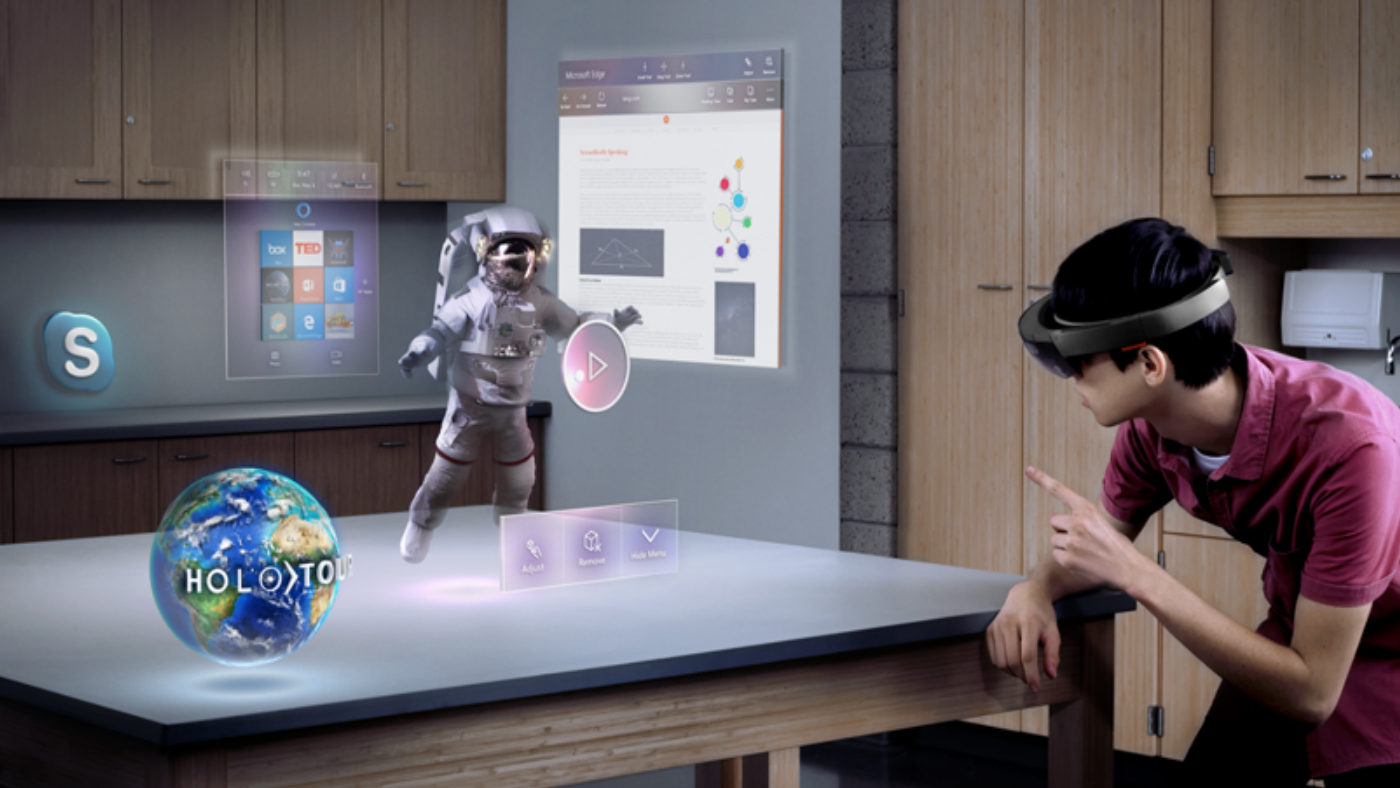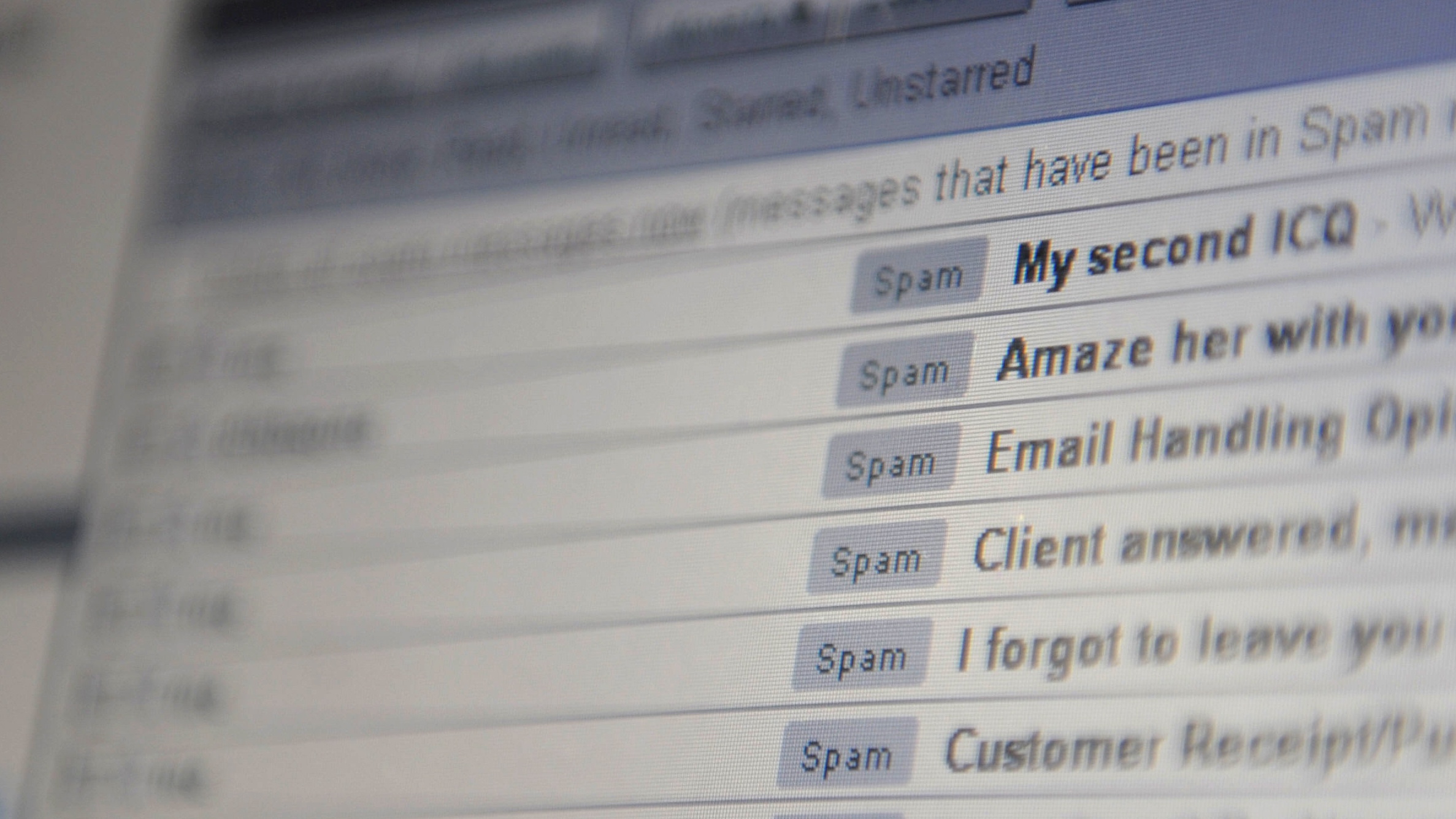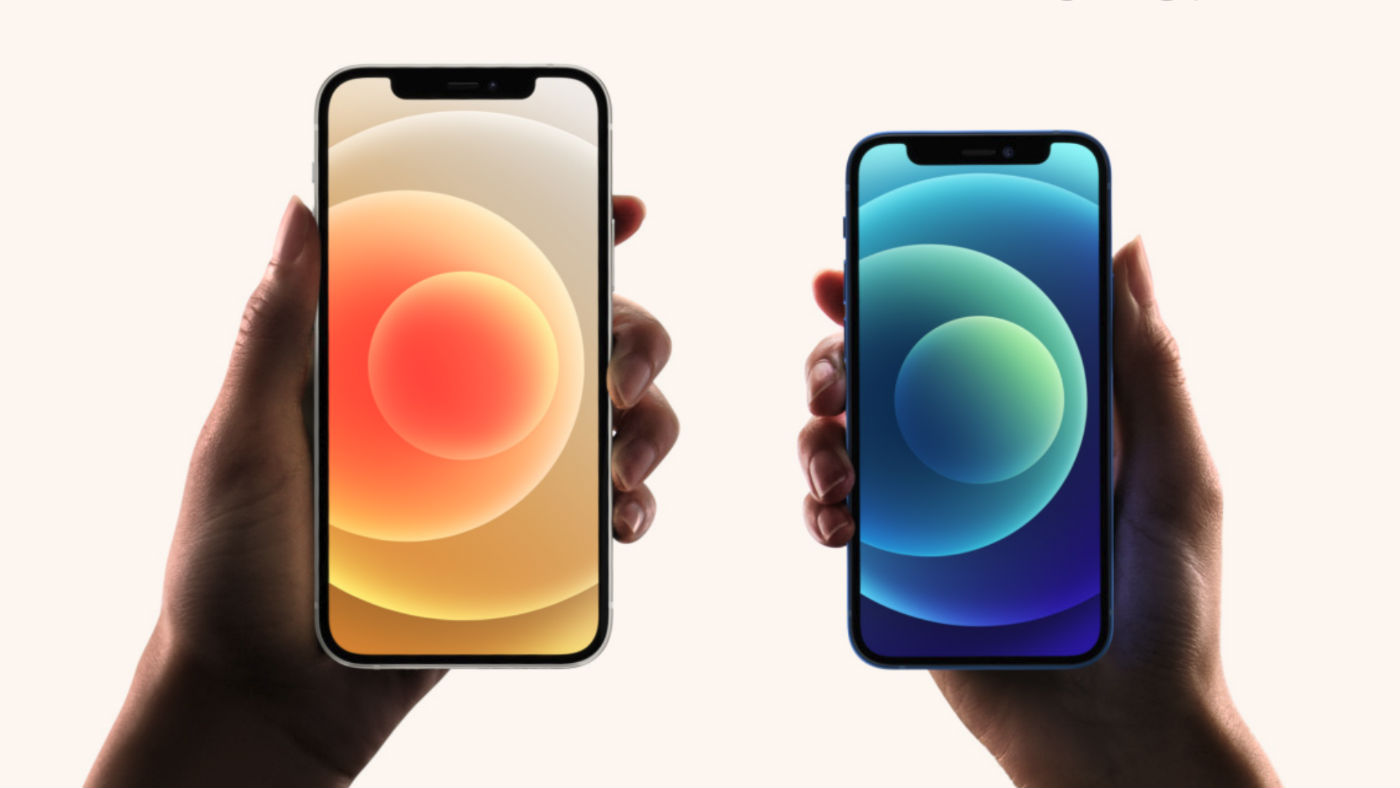Microsoft HoloLens comes to the UK
Augmented reality headset could revolutionise business – but it comes at a fairly hefty price

A free daily email with the biggest news stories of the day – and the best features from TheWeek.com
You are now subscribed
Your newsletter sign-up was successful
[[{"type":"media","view_mode":"content_original","fid":"101975","attributes":{"class":"media-image"}}]]
Hype for consumer virtual reality may be in overdrive with the launch of the PlayStation VR and new smartphone-friendly headsets, but Microsoft has quietly been busying itself with augmented reality (AR) for the last two years.
Also known as mixed reality, AR doesn't create new computer-generated environments; instead, it mixes life with the virtual, layering visual digital data on top of the real thing.
The Week
Escape your echo chamber. Get the facts behind the news, plus analysis from multiple perspectives.

Sign up for The Week's Free Newsletters
From our morning news briefing to a weekly Good News Newsletter, get the best of The Week delivered directly to your inbox.
From our morning news briefing to a weekly Good News Newsletter, get the best of The Week delivered directly to your inbox.
Microsoft revealed the HoloLens, its breakthrough augmented reality headset, in December 2014 and you can now buy it in the UK – but with a twist.
Augmented reality devices aren't quite consumer friendly yet and the company is offering its version to businesses and developers only.
The HoloLens is also incredibly expensive. For instance, the HTC Vive, the most expensive mainstream VR headset on the market, costs a fairly hefty £759. Microsoft's HoloLens will set developers back £2,719, while the full commercial suite more than £4,500.
How does it work?
A free daily email with the biggest news stories of the day – and the best features from TheWeek.com
The HoloLens is a wireless device – users aren't tethered to any PCs or external processors and all of the hardware is located inside the visor and headband.
There's an onboard GPU, CPU and a holographic processor unit, which work together with an accelerometer, gyroscope, magnetometer and "environment understanding sensors" to project holograph-like pictures on to the visor. These images can be interacted with through touch, gestures and voice.
Who will use it?
Microsoft has showcased gaming on the HoloLens in the past, but the company is keen to pitch it as a vital business tool for now. Wired says it’s only really being tested and used by certain companies and developers.
Engineers from elevator firm ThyssenKrupp use the lenses while fixing lifts, where it provides hands-free, virtual instructions in tricky places to work. Nasa has also been using the HoloLens in its offices and even onboard the International Space Station.
The tech still has some way to go before it becomes affordable and useful around the house. But if you're interested, it's available to buy now and will be in your hands in November.
-
 Political cartoons for February 7
Political cartoons for February 7Cartoons Saturday’s political cartoons include an earthquake warning, Washington Post Mortem, and more
-
 5 cinematic cartoons about Bezos betting big on 'Melania'
5 cinematic cartoons about Bezos betting big on 'Melania'Cartoons Artists take on a girlboss, a fetching newspaper, and more
-
 The fall of the generals: China’s military purge
The fall of the generals: China’s military purgeIn the Spotlight Xi Jinping’s extraordinary removal of senior general proves that no-one is safe from anti-corruption drive that has investigated millions
-
 How cybercriminals are hacking into the heart of the US economy
How cybercriminals are hacking into the heart of the US economySpeed Read Ransomware attacks have become a global epidemic, with more than $18.6bn paid in ransoms in 2020
-
 Language-learning apps speak the right lingo for UK subscribers
Language-learning apps speak the right lingo for UK subscribersSpeed Read Locked-down Brits turn to online lessons as a new hobby and way to upskill
-
 Brexit-hobbled Britain ‘still tech powerhouse of Europe’
Brexit-hobbled Britain ‘still tech powerhouse of Europe’Speed Read New research shows that UK start-ups have won more funding than France and Germany combined over past year
-
 Playing Cupid during Covid: Tinder reveals Britain’s top chat-up lines of the year
Playing Cupid during Covid: Tinder reveals Britain’s top chat-up lines of the yearSpeed Read Prince Harry, Meghan Markle and Dominic Cummings among most talked-about celebs on the dating app
-
 Brits sending one less email a day would cut carbon emissions by 16,000 tonnes
Brits sending one less email a day would cut carbon emissions by 16,000 tonnesSpeed Read UK research suggests unnecessary online chatter increases climate change
-
 Reach for the Moon: Nokia and Nasa to build 4G lunar network
Reach for the Moon: Nokia and Nasa to build 4G lunar networkSpeed Read Deal is part of the US space agency’s plan to establish human settlements on the lunar surface
-
 iPhone 12 launch: what we learned from the Apple ‘Hi, Speed’ event
iPhone 12 launch: what we learned from the Apple ‘Hi, Speed’ eventSpeed Read Tech giant unveils new 5G smartphone line-up
-
 Russian agency behind US election meddling ‘created fake left-wing news site’
Russian agency behind US election meddling ‘created fake left-wing news site’Speed Read Facebook says real reporters were hired by fake editors to write about US corruption